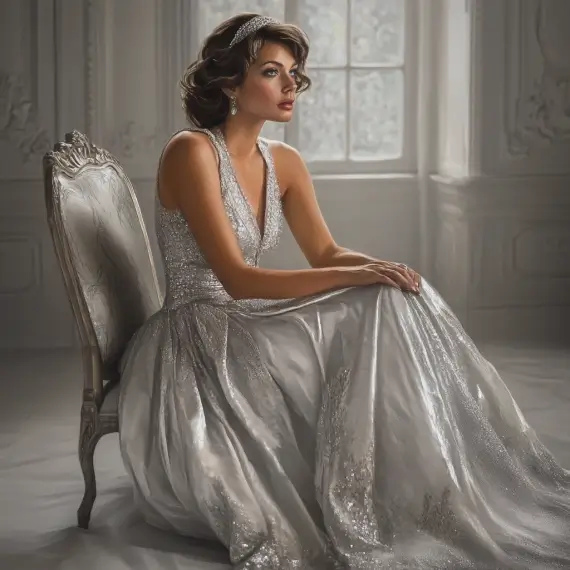“Fashion is not a woman’s distraction. It is her life.” – Elizabeth Hawes
Elizabeth Hawes did not shout. She never demanded attention. Instead, she let her work speak softly, sewing quiet revolutions into every seam. A fashion designer, author, and pioneer of practicality, she dared to question an industry obsessed with appearances, whispering to women everywhere: You deserve to wear your truth.
The Whisper in the Seams
Born in 1903, Hawes grew up observing the world with curious eyes and an intuitive sense of rebellion. By the time she reached adulthood, the fashion world was locked in a rigid dance of extravagance and elitism. But Hawes—ever the quiet maverick—dreamed of something different.
“What is fashion, after all? It is what you adopt when you don’t know who you are,” she once wrote in her groundbreaking book, Fashion Is Spinach. This simple, biting truth became her mantra. For Hawes, fashion wasn’t about impressing others—it was about liberation, individuality, and expression.
A Revolutionary Needle
Her journey began in Paris, where she copied couture designs for wealthy American buyers. The task was mechanical and uninspired, and it taught her one thing: most fashion wasn’t made for the women who wore it. Returning to New York, she sought to change this narrative.
In her atelier, Elizabeth Hawes designed clothing that flowed with women’s lives, not against them. She embraced pants for women long before it was acceptable, designing them not as statements but as practical, elegant alternatives. Her work murmured that elegance didn’t require suffering or restriction—just thoughtful design.
“I can’t imagine a man designing a dress for a woman he’d like to take out to dinner,” she quipped, exposing how disconnected fashion could be from real life.
Words That Whispered Freedom
Hawes wasn’t just a designer; she was a thinker and a writer. In Fashion Is Spinach, she dissected the industry with a mix of sharp wit and quiet wisdom. She criticized the blind following of trends and encouraged women to seek authenticity in what they wore.
“I don’t think that many people know they have a right to their own opinion about clothes,” she wrote, urging women to reclaim their agency.
Her words were like soft gusts of wind, challenging the status quo without ever raising her voice.
A Legacy of Quiet Defiance
Though she never sought fame, Elizabeth Hawes left a lasting mark. Her quiet advocacy for comfort, simplicity, and individuality shaped how we think about clothing today. In every ready-to-wear garment that prioritizes movement, in every woman who dares to wear what she loves, Hawes’s whisper lingers.
“Fashion, to me, is a way of thinking—a way of doing something about the way you live.”
Her life’s work, much like her words, was a quiet revolution. And in a world that often rewards noise, her subtlety is a reminder that the softest voices can leave the most profound echoes.






Leave a Reply
You must be logged in to post a comment.